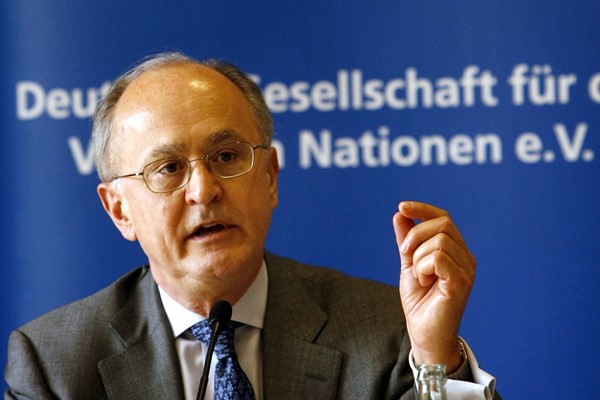On Sept. 16, on the eve of the opening of this year’s United Nations General Assembly, John Ruggie passed away. A giant in the study and practice of world politics, Ruggie’s writings left a lasting impression on a generation of colleagues and students, and his contributions to multilateral cooperation as a U.N. official will reverberate for many more. In a half-century career straddling academia and policymaking, Ruggie enriched our collective understanding of the normative sinews of world order and the endless possibilities of international cooperation.
It is rare for academics to have a direct policy impact, but Ruggie certainly did. He served in the U.N. from 1997 to 2001 as assistant secretary-general for strategic planning, helping to design both the U.N. Global Compact and the Millennium Development Goals. He rejoined the organization in 2005 as a special envoy to the U.N. secretary-general, spearheading a set of Guiding Principles on Business and Human Rights, widely known as the “Ruggie Principles,” which outlined the responsibility of private corporations to promote human dignity in their operations. Since other admirers are better placed to comment on his years in the policy arena, I will focus mainly on his intellectual contributions to the field of international relations, which profoundly shaped my own worldview.
Ruggie’s writings were revolutionary because they challenged the stultifying dominance of the two leading U.S. academic approaches to world politics, known as “realism” and “neoliberal institutionalism.” The former depicts sovereign states as relentlessly pursuing relative power and material interests in an anarchical, “every state for itself” international system. The latter accepts many of realism’s premises about state motivations, but is more sanguine about prospects for global cooperation in that environment of anarchy. Both perspectives portray states as unitary, rational actors attempting to maximize their expected utility across a set of consistently ordered preferences—the sovereign state as homo economicus, as it were.

